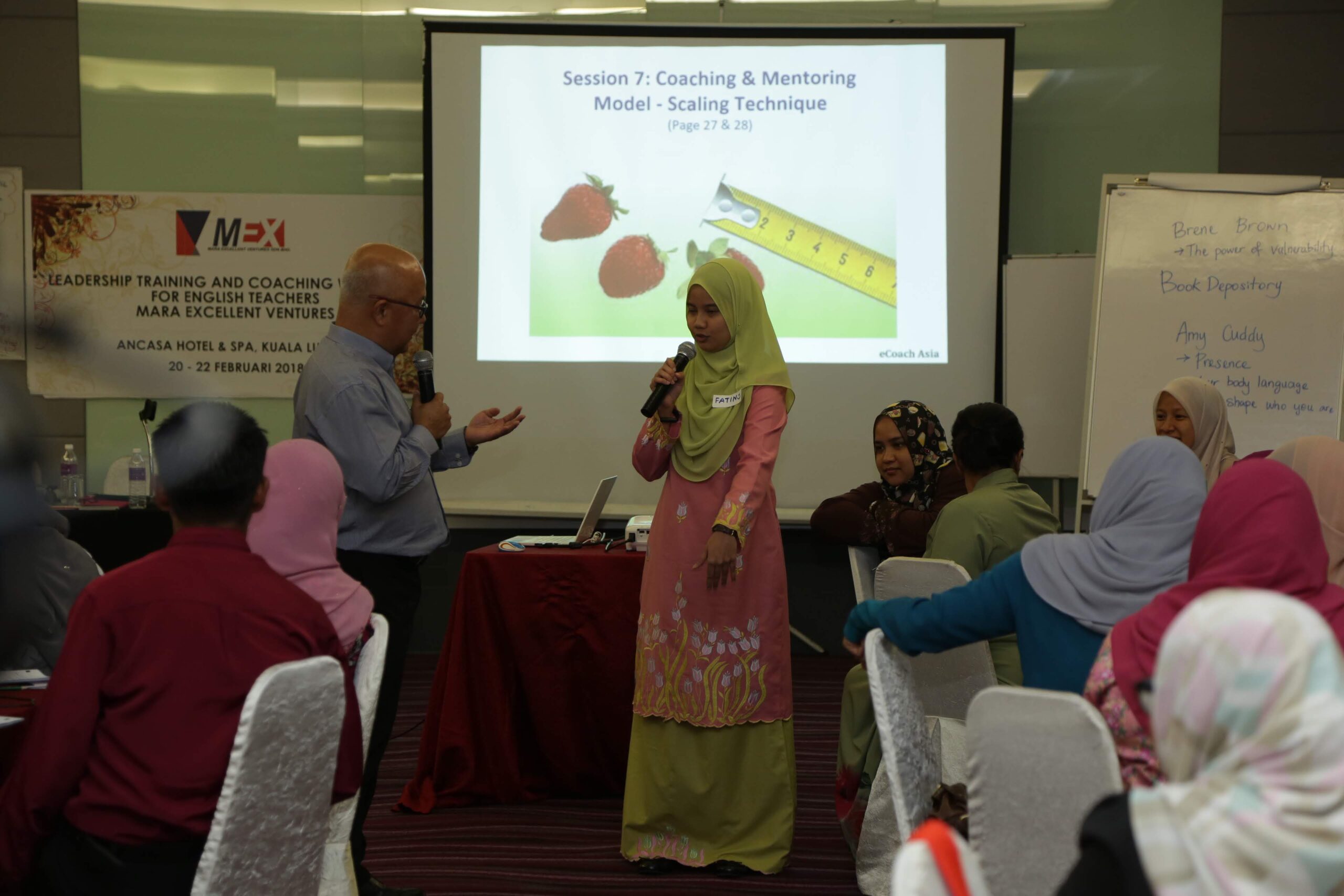Research Paper: Emotional Intelligence in Coaching
25 May 2021
As human beings, we are emotional creatures. Our emotions affect everything that we do from the choices and decisions we make, the careers we pursue to how we choose to live our lives. Emotions help us choose our friends, with whom we fall in love and choose to spend our entire lives… but also what and whom we choose to bring with us or leave behind.
As an Emotional Intelligence Practitioner for the last three years I have embarked on writing this Research Paper to share my experience on the application of Emotional Intelligence in the workplace. As a PCC credentialed ICF Coach I have discovered the power of Emotional Intelligence in Coaching. I have presented in this Research Paper how Emotional Intelligence complements the ICF Competencies and it can help unleash the full potential of a Coach and how it will also ultimately benefit clients.
What is Emotional Intelligence?
Emotions can be one of the most powerful things in our lives. Emotional intelligence is the ability to harness that power – to understand and manage our and others’ emotions, so that you can make decisions that help us move towards being best versions of ourselves and being closer to our values and beliefs.
The idea of emotional intelligence has been around for some time now. In the last quarter of century emotional intelligence has become more widely accepted – especially in the corporate and business world.
Two psychologists, John Mayer, now at the University of New Hampshire, and Yale’s Peter Salovey offered the first formulation of a concept they called “Emotional Intelligence” originally developed in the 1970s and 80s.
When Daniel Goleman’s book “Emotional Intelligence” [1] was first published in 1995, no one imagined that this best-selling book would transform the role of leadership. With over five million copies sold the book had great reviews by critics and is described as “a revolutionary, paradigm-shattering idea” by the Harvard Business Review [2], Goleman resonated with the corporate world and business leaders.
The ingredients of Emotional Intelligence proposed by Goleman’s original book are:
- Self Awareness: the cornerstone of emotional intelligence–a capacity to recognize your feelings as they occur.
- Self Regulation: an ability to manage your emotional reactions, control impulse, and to recover from life’s upsets.
- Motivation: skill at using your emotions in the service of a goal, staying hopeful despite setbacks.
- Empathy: emotional sensitivity to others; a talent for tuning into others’ feelings, and reading their unspoken messages.
- Social Skills: grace in dealing with others–strong social skills are the key to popularity, leadership, and interpersonal effectiveness.
Emotional Intelligence Applied
The challenge with Emotional Intelligence is how it is applied, in our daily lives and at the workplace. Intellectually it is easy enough to understand however based on my experience delivering numerous Emotional Intelligence training programs for leaders in the last five years the real challenge is in its meaningful application.
I usually start my Emotional Intelligence leadership training sessions asking a series of questions as a warm-up exercise:
- How many of you heard of Daniel Goleman’s book “Emotional Intelligence”?
- How many of your bought Daniel Goleman’s book “Emotional Intelligence”?
- How many of you read Daniel Goleman’s book “Emotional Intelligence”?
- How many of you made a significant change in your lives as a result of 1 – 3 above?
Of the hundreds of leaders from my training sessions, the typical approximate percentages of responses are as follows:
- 80 – 100%
- Approximately 60 – 70%
- Approximately 40 – 50%
- Less than 20%
The figures above suggest that while most professionals and business leaders understand and appreciate the importance of Emotional Intelligence in the workplace, very little of this translates into any meaningful application.
Training sessions that I run certainly help however Coaching is an area which potentially will be able to facilitate this meaningful change towards a more emotionally intelligent workplace.
The Business Case for Emotional Intelligence
The World Economic Forum (WEF) has highlighted Emotional Intelligence as the Top 10 Skills required in 2020 and the Growing 2022 Skills Outlook [3], [4]:
Harvard Business Review (HBR) has also recently highlighted how Emotional Intelligence became a key leadership skill [5]:Numerous other publications like Forbes and Inc. have also published why EQ is as if not more important than IQ [6], [7].
What is even more compelling is that the most recent research by Capgemini “Emotional Intelligence – The Essential Skillset for the Age of AI” [8] published in October 2019 shows that there is a direct link between Emotional Intelligence with:
- Increased Productivity
- Higher Employee Satisfaction
- Increased Market Share
- Better Emotional & Mental Wellbeing
- Reduced Fear of Job Loss
- Openness to Change
The Genos Emotional Intelligence Assessments & Diagnostics
As a Genos Emotional Intelligence Practitioner and Master Trainer I am able to share the model that I use in my training programs, which helps with the application of Emotional Intelligence for leadership and in the workplace.
Genos is one of the leading workplace and leadership Emotional Intelligence in the business world. It won three awards by prestigious Industry Inc. as Top 20 Assessments and Evaluation Companies five years in a row for 2017, 2018, 2019, 2020 and 2021.
Genos Emotional Intelligence suite of assessments and diagnostics [9] include:
- Workplace & Leadership (Self, 180 & 360) Assessments for Individuals
- Emotional Culture Index for Organisations
- Candidate Selection Report for Recruitment
- Return on Investment (ROI) Calculator for Organisations
- A series of 1-Day Resilient, Mindful, Empowering & Inspiring Leader Programs
- Flagship Ignite Leadership Enhancement Program with T1 & T2 Assessments
Genos is also an official Business Partner of ICF Global [9]. Genos Emotional Intelligence assessments moves very quickly into development and action for the client /leader and supports the Coaching approach consistent with the ICF and its core competencies.
Emotional Intelligence & Coaching
There is no doubt that Emotional Intelligence is important in Coaching. Because Coaching is a human interaction, emotions play a crucial part in its success. Most if not all of the ICF Competencies require Emotional Intelligence.
However, as an observation Emotional Intelligence is not mentioned specifically in the 2019 ICF Competencies. Similar to my experience in Emotional Intelligence training the challenge is in the application in Coaching. Emotional Intelligence is covered as briefly as a topic in most Coaching programs I have come across, including the International Coaching Academy (ICA) I enrolled in.
Daniel Goleman has written several articles on Emotional Intelligence in Coaching including for ICF Global [10] and on LinkedIn [11]:
The top tips in relation to Emotional Intelligence and Coaching [10] are:
- Familiarize yourself with one Emotional Intelligence Model – The are many Emotional Intelligence Models in the market place. Many factors come into which one you choose to be familiar with as a Coach. This includes the costs of accreditation, the range assessments and diagnostics and how well the application of Emotional Intelligence works for individual and the organizations.
- Start with Yourself – In order to effectively Coach others for Emotional Intelligence, you might do well to first foster the competencies within yourself. Great Coaches apply emotional intelligence throughout their work: They remain calm in difficult situations, with emotional balance. They rely on empathy to understand their clients’ perspectives and give on-target, individualized feedback. They have a genuine interest in helping clients find growth opportunities — an essential part of the ICF Coaching core competency model.
- Explore Emotional Intelligence in your Coaching – you can help your client foster self-awareness to recognize their emotions, habits and triggers. When you notice a pattern in a client’s perceptions and actions, bring it to their attention kindly to help them understand where they’re getting stuck. When they have a difficult day and fall back on old habits, you can help them get back on track and turn a perceived failure into a learning opportunity.
- Incorporate Emotional Intelligence throughout your Coaching work – Try and incorporate Emotional Intelligence throughout your Coaching work. By beginning with emotional self-awareness—the foundation of emotional intelligence—your clients will learn to recognize their emotional drivers and limitations which, in turn, attune them to their values and vision. The ability to help clients discover or rediscover their purpose and values is crucial to staying motivated for growth. This sets great Coaches apart from those who employ cookie-cutter, one-size-fits-all coaching. These Coaches develop a working alliance of trust with their clients and help them align their goals with learnable competencies. And their clients are far more likely to put in the necessary work.
Genos Emotional Intelligence Model & ICF Competencies
The Genos Emotional Intelligence Model is endorsed by Daniel Goleman. Genos International is currently one of the few elite corporate members of the Consortium for Research of Emotional Intelligence in Organization which is founded by and co-chaired by Daniel Goleman.
The Genos Emotional Intelligence Leadership Model has six competencies
- Self-Awareness
- Awareness of Others
- Authenticity
- Emotional Reasoning
- Self-Management
- Inspiring Performance
The Genos Emotional Intelligence Workplace & Leadership Model is a Behavioural Model which is statistically Reliable and Valid[9].
The 2019 ICF Competencies [12] are:
- Foundation
- Demonstrates Ethical Practice
- Embodies Coaching Mindset
- Co-Creating the Relationship
- Establishes and Maintains Agreements
- Cultivates Trust and Safety
- Maintains Presence
- Communicating Effectively
- Listens Actively
The ICF Competencies support the Genos Emotional Intelligence Workplace & Leadership model and vice versa. The diagram below demonstrates how the ICF competencies map to the Genos Emotional Intelligence Competencies:
The 2019 ICF Competencies mapped onto the Genos Emotional Intelligence Competencies:
| 2019 ICF Competencies | Genos Emotional Intelligence Competencies |
| A. Foundation | |
| 1. Demonstrates Ethical Practice | 4. Emotional Reasoning |
| 2. Embodies Coaching Mindset | 5. Self-Management |
| B. Co-Creating the Relationship | |
| 3. Establishes and Maintains Agreements | 4. Emotional Reasoning |
| 4. Cultivates Trust and Safety | 3. Authenticity |
| 5. Maintains Presence | 1. Self-Awareness |
| C. Communicating Effectively | |
| 6. Listens Actively | 2. Awareness of Others |
| 7. Evokes Awareness | 7. Inspiring Performance |
| D. Cultivating Learning and Growth | |
| 8. Facilitates Client Growth | 7. Inspiring Performance |
Conclusion
Emotional Intelligence will continue to take prominence in the business world, leadership and the future of work.
Emotional Intelligence is supports the ICF core competencies and is completely consistent with its ethos.
For the established Coach, a seasoned Executive Coach or a new Coach incorporating Emotional Intelligence in your Coaching practice will help enhance and make a lasting, positive impact on your life, your clients’ lives and the lives of those around you.
References
- Emotional Intelligence, Daniel Goleman, Bantam Dell Publishing (1995)
- Emotional Intelligence: Why It Can Matter More Than IQ, Daniel Goleman, Bantam Dell Publishing (2015)
- The 10 Skills You Need to Thrive in the Fourth Industrial Revolution, A Gray, World Economic Forum (19 January 2016) https://www.weforum.org/agenda/2016/01/the-10-skills-you-need-to-thrive-in-the-fourth-industrial-revolution/
- 5 Things to Know About the Future of Jobs, V Ratcheva & T Leopold, World Economic Forum (17 September 2018) https://www.weforum.org/agenda/2018/09/future-of-jobs-2018-things-to-know/
- How Emotional Intelligence Became a Key Leadership Skill, A Ovans, Harvard Business Review (28 April 2015) https://hbr.org/2015/04/how-emotional-intelligence-became-a-key-leadership-skill
- When It Comes To Success In Business, EQ Eats IQ For Breakfast, C Myers, Forbes (18 June 2018) https://www.forbes.com/sites/chrismyers/2018/06/18/when-it-comes-to-success-in-business-eq-eats-iq-for-breakfast/#10d9e8166822
- Why EQ Matters More Than IQ, J Bariso, Inc (6 September 2016) https://www.inc.com/justin-bariso/why-eq-matters-more-than-iq.html
- Emotional Intelligence: The Essential Skillset for the Age of AI, Gapgemini Research, (November 2019) https://www.capgemini.com/research/emotional-intelligence/
- Genos Emotional Intelligence Model, Suite of Assessments & Diagnostics,
(August 2020) https://www.genosinternational.com/ - How to Coach Works with Emotional Intelligence, Daniel Goleman, International Coaching Federation (ICF) Blog (10 September 2018) https://coachfederation.org/blog/work-with-emotional-intelligence
- Should You Become An Emotional Intelligence Coach?, Daniel Goleman, LinkedIn (26 February 2019) https://www.linkedin.com/pulse/should-you-become-emotional-intelligence-coach-daniel-goleman/
- Updated International Coaching Federation (ICF) Core Competency Model (October 2019) https://coachfederation.org/app/uploads/2019/11/ICFCompetencyModel_Oct2019.pdf







